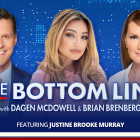Meta appears to be at a crossroads in the battle for free speech. In spite of CEO Mark Zuckerberg’s Jan. 7 about-face on free speech, Meta already appears to be foolishly returning to some of its bad old ways.
Meta announced Tuesday a “School Partnership Program” for Instagram designed to facilitate the censorship of content posted by students. The program would allow educators to report “potential teen safety issues, including bullying, directly to [Meta].”
MRC Free Speech America Director Michael Morris condemned this program in a statement. “This so-called anti-bullying program reeks of the Orwellian censorship catastrophe that was the Election Integrity Partnership reborn,” Morris stated. “Time and time again the left and Big Tech (but I mostly repeat myself) have used the pretense of protection and safety — especially of children — to curtail the free speech liberties of Americans. And that appears to be what Meta is again tiptoeing towards here.”
While protecting children is important, Meta has not sufficiently addressed the risks associated with this program. Notably, this new partnership encourages adults to demand censorship of kids’ content that they subjectively deem inappropriate, potentially even when that content is posted at home.
There is a U.S. Supreme Court ruling against a school suspending a student for her private online social media posts. In Mahanoy Area School District v. B.L., the Biden administration claimed that public schools had the right to implement speech codes that could even penalize students for off-campus speech.
This case addressed the situation of one Pennsylvania student in particular who was banned from her school’s extracurricular activities because of a seemingly frustrated, self-deleting message on Snapchat to her friends: “f-ck school f-ck softball f-ck cheer f-ck everything.”
The U.S. Supreme Court ruled 8-1 that the student’s speech did not cause “substantial disruption” or pose any threats to other students. However, the Biden-led Department of Justice asserted that even “political speech” could be regulated by school officials, meaning teachers and administrators could punish students for opinions with which they disagree.
Could not the same situation happen on Instagram? The B.L. case was one of the reasons legal expert Jonathan Turley labeled the Biden administration “the most anti-free speech administration” since 1801. The above case makes Instagram’s assurances suspect.
Despite obvious free speech concerns, Meta boasted of the partnership in a press statement, quoting D.J. Ashford, a teacher at Muwekma Ohlone Middle School: “Within the first week of partnering with Instagram, we saw bullying and harassing posts and profiles taken down.”
Furthermore, without clear definitions of what constitutes bullying and harassment, it remains unclear whether Meta’s policy includes political speech or critiques of hot button cultural topics like the left’s “transgender” ideology, for example.
The definition of bullying or inappropriate content can be highly subjective, as it varies depending on who is reporting the content. Instagram has a track record of censoring free speech in this context.
MRC Free Speech America has documented numerous cases in our unique CensorTrack database.
For example, in June 2024, Millennial Republicans posted an Instagram story claiming then-President Joe Biden was treated “like a toddler.” Instagram removed the story for supposedly violating its rules on “graphic violence, [h]ate speech, harassment and bullying.”
In May 2021, Democratic Party California Gov. Gavin Newsom’s challenger Kevin Paffrath’s Instagram post was briefly removed for allegedly violating the platform’s harassment guidelines. Paffrath called Newsom a “weenie baby” in a video.
In November 2024, a Facebook user was censored for the comment: “if you say so cupcake” alongside a crying, laughing emoji. This post supposedly violated Facebook’s “Community Standards on harassment and bullying.”
MRC Senior Counsel for Investigations Tim Kilcullen contributed to this report.









